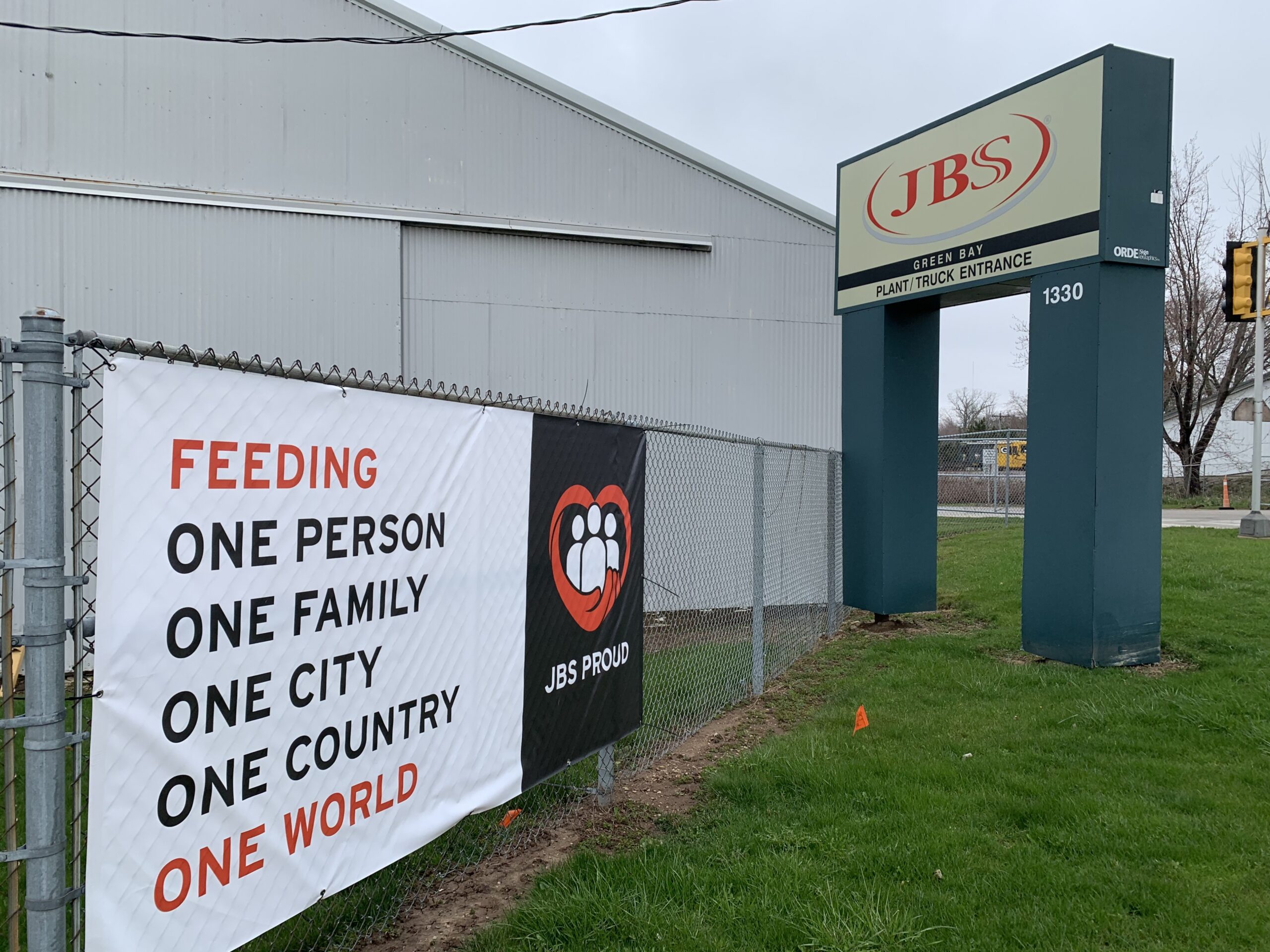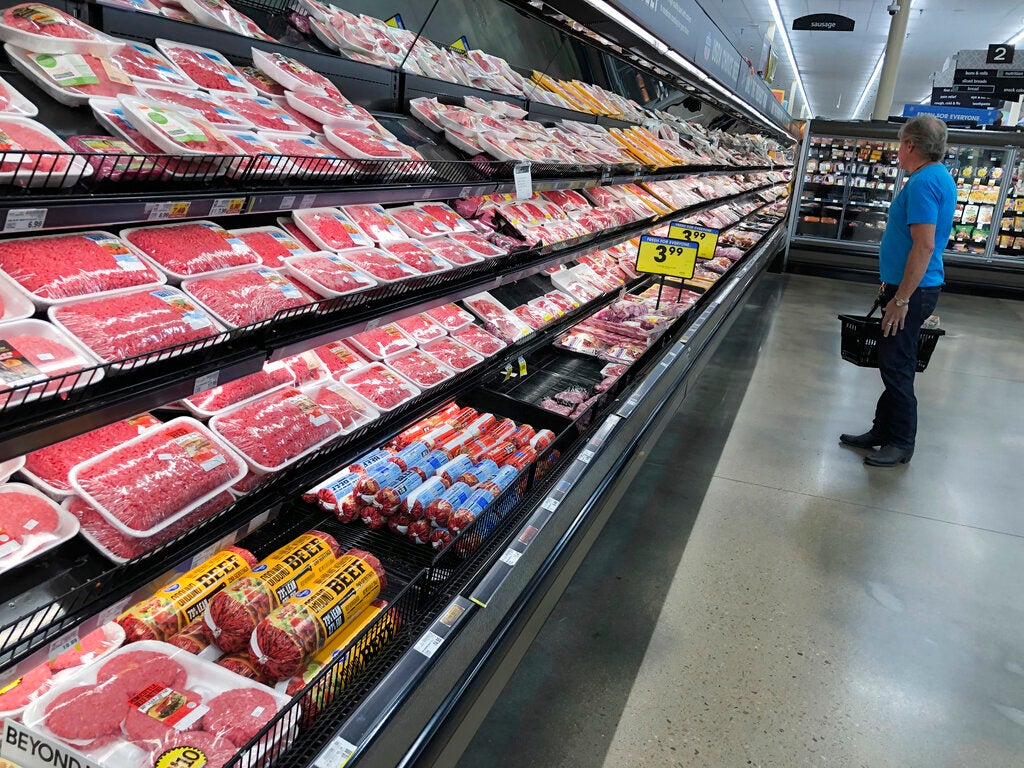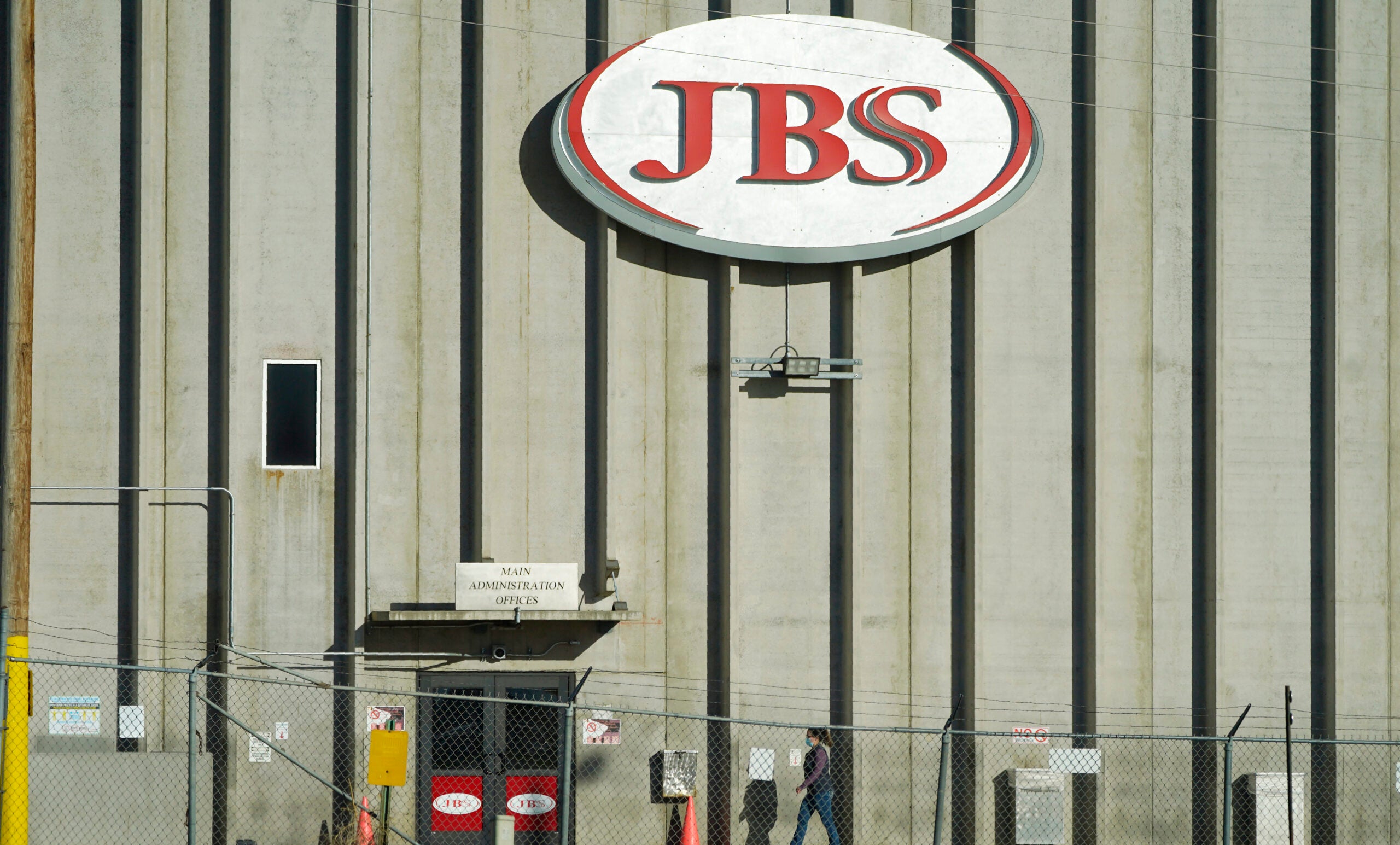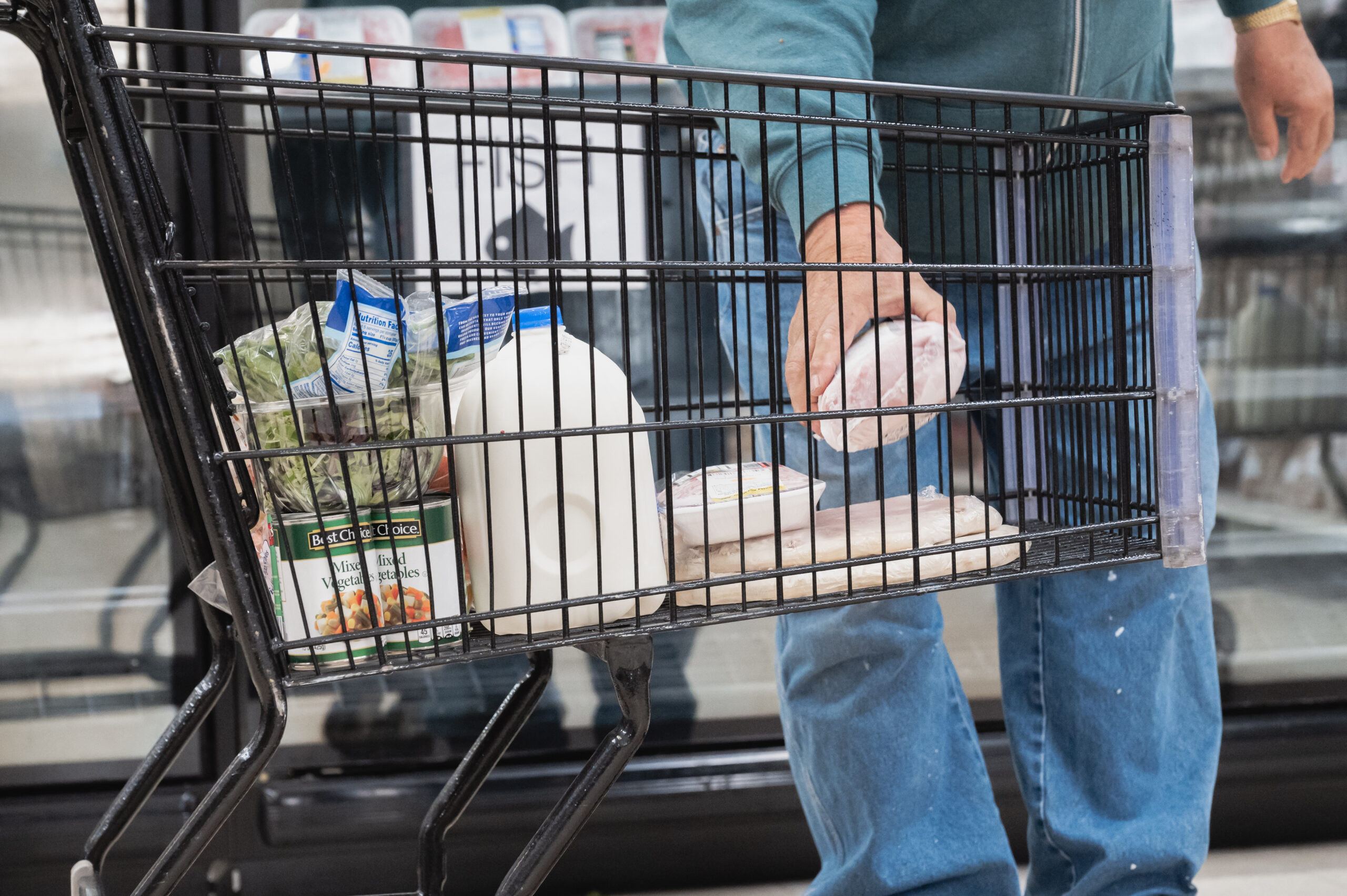A Brown County meatpacking facility reopened Tuesday after closing for just over a week due to an outbreak of cases of the new coronavirus.
JBS Packerland has begun harvest operations with a reduced staff. Fabrication will resume Wednesday, according to Cameron Bruett, head of corporate affairs for JBS.
“The decision to reopen was based on our ability to safely operate with the preventive measures we have put in place to protect the workforce,” Bruett said in an email.
News with a little more humanity
WPR’s “Wisconsin Today” newsletter keeps you connected to the state you love without feeling overwhelmed. No paywall. No agenda. No corporate filter.
Every worker will be tested for COVID-19 before returning to the plant, Bruett said. The company has instituted other safety policies including staggering shift and break times, hiring additional cleaners, requiring employees to wear masks and limiting visitors to the facility.
“No one is forced to come to work and no one is punished for being absent for health reasons,” he said.
JBS expects operations at its Green Bay facility to get back to normal as the new safety precautions take effect and as workers finish any required quarantine periods, Bruett said.
Hundreds of workers at JBS Packerland have tested positive for COVID-19. The facility temporarily closed April 26, according to a news release from the company.
Employees at American Foods Group and Salm Partners, two other Brown County meatpacking companies, have also tested positive for the new coronavirus, though neither plant has closed as a result of the pandemic.
A worker at American Foods said he was suspended for eight days after asking his supervisors to provide additional protective equipment for employees.
Filiberto Reyes-Martinez has worked in American Foods’ boning department for about two years, he said. He said workers were given one mask and one coat to wear throughout their shift, but they often sweated through them.
“Really, asking for protective equipment is nothing small, it’s simply avoiding death,” he said Friday.
American Foods did not immediately respond to a request for an interview.
Brown County has the highest rate of COVID-19 infection in the state, at nearly 600 per 100,000 residents, according to the Wisconsin Department of Health Services.
A community testing site is open at the Resch Center, near Lambeau Field. Another will open later this week at the downtown YWCA in collaboration with Casa ALBA Melanie, a Hispanic community resource center, Green Bay Mayor Eric Genrich said on WPR’s “The Morning Show” Tuesday.
Any workers who feel unsafe, including those who work at meatpacking facilities, should report the conditions to the local health department and the Occupational Safety and Health Administration, Genrich said.
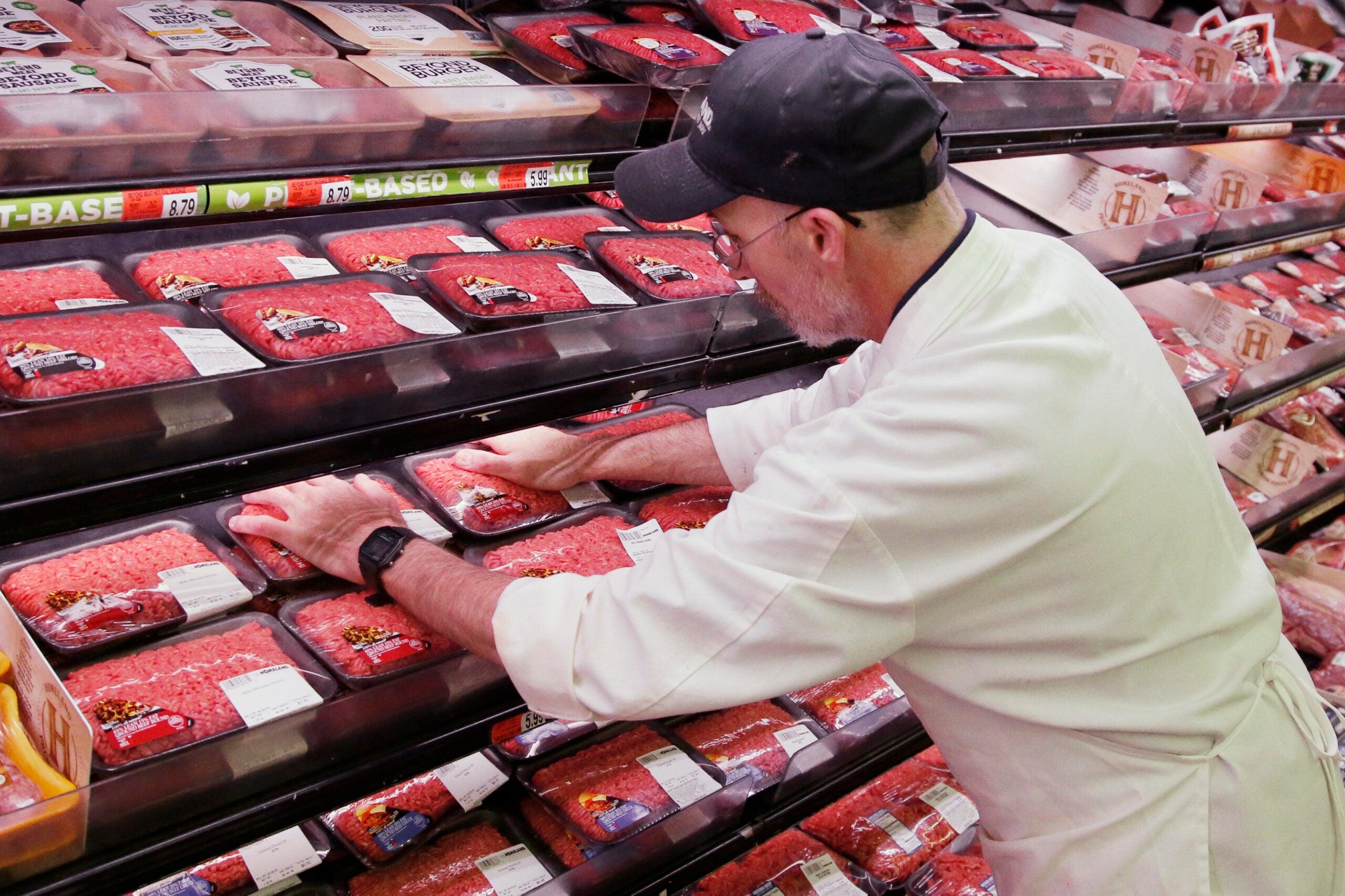
Many of the workers in the industry are immigrants, a group that may feel particular pressures to keep their jobs despite risks because they lack other options for work, said Jarrett Brown, a former employee at a meatpacking plant in Green Bay. He left the job in January.
“Workers are all very aware of what’s happening and the risk they take every day,” said Brown, who worked in the food processing industry for 12 years.
Brown said in his experience, a majority of workers at plants he worked for did not speak English as a first language. Many were in the U.S. and working legally, but even they felt they had few options in the labor market.
“They can’t just transfer to something else,” Brown said. “These are the jobs they can do. They have to say, ‘Well, I have my family here, my kids here, and then I have my family back in whatever place I’m from. These people are relying on me. … They need me.’”
That puts them at the mercy of their employers, Brown said, whether their workplaces are taking sufficient safety precautions or not.
Some meat processors around the country have blamed the spread of COVID-19 on employee behavior outside of work, rather than unsafe conditions in their facilities, said Deborah Berkowitz of the National Employment Law Project, an assertion with which she disagrees.
“This outbreak in meat packing was not inevitable,” she said Friday. “There’s nothing about meat or the workers that make this workplace any different than any others.”
Editor’s note: Rob Mentzer contributed to this report.
Wisconsin Public Radio, © Copyright 2025, Board of Regents of the University of Wisconsin System and Wisconsin Educational Communications Board.

